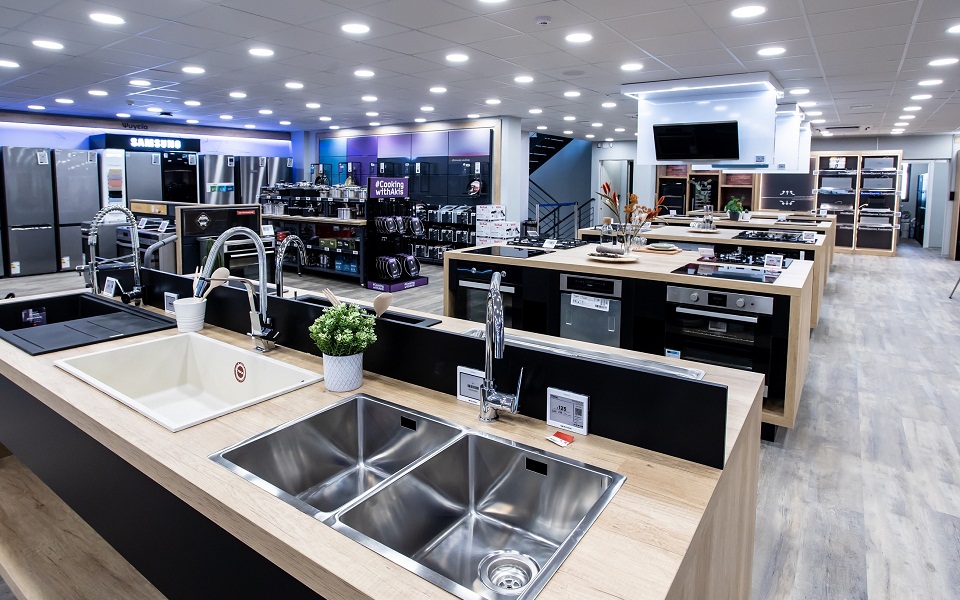Why Currys is selling its Greek arm

The likely sale of retail chain Kotsovolos is expected to create a new landscape in the domestic market of electrical and electronic household appliances, especially since it is its biggest player.
It’s a market that has been constantly changing in recent years, following the bankruptcy of Ilektroniki Athinon in 2016, the acquisition of MediaMarkt in 2019 by the Olympia Group and its merger with Public, and the entry in the same year of Plaisio into the white goods category.
On Friday, British group Currys (formerly Dixons), which owns Kotsovolos, announced it is considering selling the Greek chain, with the timetable, Kathimerini understands, providing for procedures to be completed by end-2023. The search for a buyer has been entrusted to Citigroup, while three scenarios are being considered: the sale of 100% of Kotsovolos, the sale of a majority block of shares, or maintaining control if one of the first two scenarios does not work out.
The reason Currys decided to put Kotsovolos up for sale is that its Greek arm has been its best silverware for several years, as it not only maintained but also strengthened its commanding position in the market. The revenues of Kotsovolos constitute approximately 20% of the total revenues of the British group.
“Currently, Currys is seeking to take advantage of the high prospects of Kotsovolos, but also of the Greek economy, looking forward to the goodwill of the company, as well as the funds estimated to flow into the country due to the investment grade,” an executive with knowledge of the decisions of the British group told Kathimerini.

On the other hand, Currys is constantly counting losses in the British and Scandinavian markets, which it wants to partly offset through the sale of Kotsovolos.
The question now is who would buy Kotsovolos. At least one of the other two major market players, Plaisio, has declared itself “present” in the proceedings. The other big player, Public, is still in the process of completing its merger with MediaMarkt and seems unlikely to enter discussions for a new takeover, especially of a company whose valuation is estimated to be quite high.





